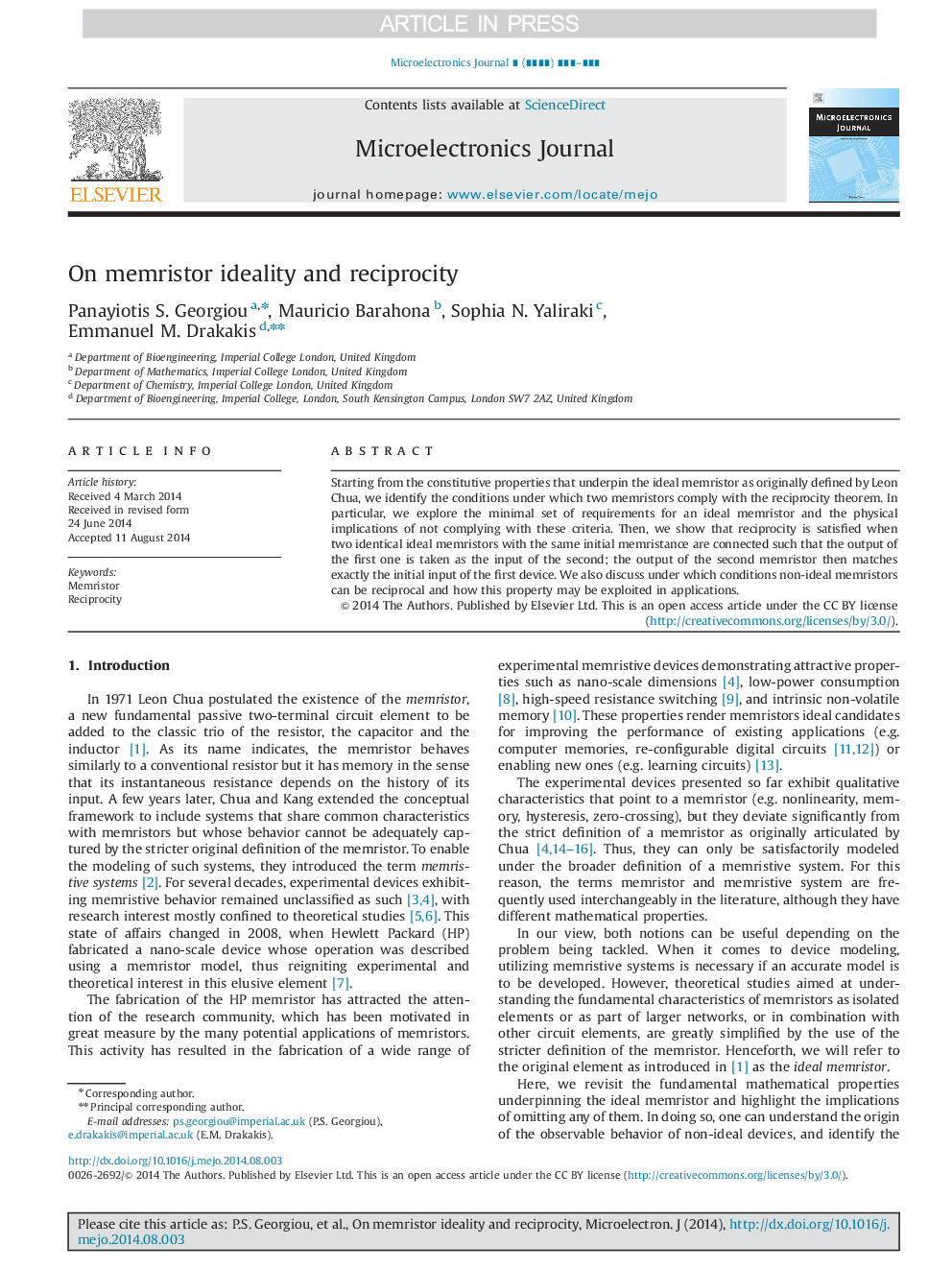| Article ID | Journal | Published Year | Pages | File Type |
|---|---|---|---|---|
| 10364145 | Microelectronics Journal | 2014 | 9 Pages |
Abstract
Starting from the constitutive properties that underpin the ideal memristor as originally defined by Leon Chua, we identify the conditions under which two memristors comply with the reciprocity theorem. In particular, we explore the minimal set of requirements for an ideal memristor and the physical implications of not complying with these criteria. Then, we show that reciprocity is satisfied when two identical ideal memristors with the same initial memristance are connected such that the output of the first one is taken as the input of the second; the output of the second memristor then matches exactly the initial input of the first device. We also discuss under which conditions non-ideal memristors can be reciprocal and how this property may be exploited in applications.
Keywords
Related Topics
Physical Sciences and Engineering
Computer Science
Hardware and Architecture
Authors
Panayiotis S. Georgiou, Mauricio Barahona, Sophia N. Yaliraki, Emmanuel M. Drakakis,
